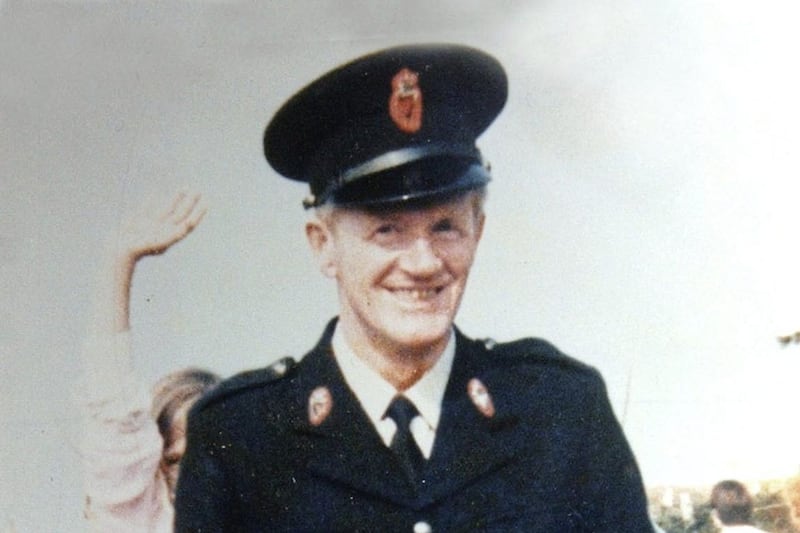FORMER RUC chief constable Sir Jack Hermon believed a united Ireland was inevitable, according to a new book.
The claim is made in a book based on the journals kept by one of the men who masterminded the Anglo Irish Agreement.
Sir Jack, who died in 2008, was chief constable from 1980-1989 and led the organisation through several periods of intense conflict.
A series of alleged RUC 'shoot to kill' operations were carried during his time in charge of the force, which led to claims that republican suspects were being shot dead rather than being arrested.
Details of background in the lead up to the agreement have been revealed in the memoirs of senior diplomat David Goodall.
`The Making of the Anglo-Irish Agreement of 1985' a memoir by David Goodall, lifts the lid on the background story of the historic agreement, which allowed for greater involvement in northern affairs by the Dublin government.
The agreement was bitterly opposed by unionists and sparked mass protests across the north.
A former High Commissioner of India, Mr Goodall helped negotiate the Anglo Irish Agreement while attached to the Cabinet Office.
In his memoirs he recalls a meeting with Sir Jack in January 1984 and recalls how he expected him to be "dour and cautious in talking to me".
However, during the meeting which took place a decade before the IRA called its 1994 ceasefire, Sir Jack spoke of his belief that that there will be a united Ireland.
"In the event he was quite remarkably frank," he wrote.
"In the long term, he thought the unification of Ireland in some form or other was inevitable, and he was strongly against any further integration of the province into the United Kingdom."
During 1984 Mr Goodall met with the British army commanders and was later a guest of Sir Jack, spending time at RUC headquarters and visiting stations along the border, including Strabane and Crossmaglen.
He said "that communications between the RUC Headquarters in Lisburn and the Garda HQ in Dublin were so slow as to be virtually still in the era of the cleft stick" but that "at station level cross border cooperation with the Garda was excellent, although it became more formal as one went higher".
He claimed that at Strabane RUC it was said there were 130 paramilitaries living across the nearby border, and the RUC chief inspector "flatly denied" the south was a 'safe haven'.
The same officer believed Garda "were handicapped by lack of information and by being allowed to hold suspects for only two days (as against seven days in the north)".
He said some RUC officers believed the force should be allowed to take part in Garda interrogations.
"Some thought it would be helpful if RUC officers could take part in the interrogation of suspects by the Garda in the South or favoured joint planning so that operations on either side of the border could be synchronised, but the station commander at Crossmaglen said that this in effect was already happening," he wrote.
:: The Making of the Anglo-Irish Agreement of 1985, a memoir by David Goodall, is published by the National University of Ireland and available to buy now.








